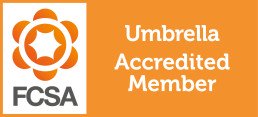Share this article

Capital Gains Tax is a tax on the profit made when you sell or dispose of an asset that’s increased in value. Our blog explores what the tax is, when it’s due, exemptions and allowances.
What is Capital Gains Tax?
Capital Gains Tax is the amount of tax due on the increased value from the sale or disposal of an asset or possession. Typical assets you may pay Capital Gains tax on include:
- Valuables such as antiques or jewellery
- Shares and funds
- Your business
- A buy to let property or second home
There are many ways you can dispose of an asset, and these include:
- Giving it away as a gift
- Transferring it to someone else
- Selling it
- Swapping the asset for something similar
- Receiving compensation for it, e.g. if an insurance payout is lost
Not all assets are taxable, for example, if you sell your car or make a profit on your primary residence.
Capital Gains Tax Allowances
Capital Gains Tax will be due on any gains above your Annual Exempt Amount (or tax-free allowance). The Capital Gains tax-free allowance for the 2020/21 tax year is:
- £12,300 for individuals
- £6,150 for trusts
If your assets are owned jointly with another person, it is possible to combine both the allowances to double the amount you can make before Capital Gains tax is due.
If you are married or in a civil partnership, you can transfer your assets to your partner and no Capital Gains tax will be charged. However, if an asset is transferred and sold at a later date, Capital Gains tax will be charged for the period where you owned the asset as a couple.
Capital Gains Tax Rates
Capital Gains Tax will be charged on the profits (‘gains’) arising from the sale or transfer of an asset, that have exceeded your annual tax-free allowance – £12,300 for individuals.
| Residential property | Other assets | |
| Standard rate | 18% | 10% |
| Higher rate | 28% | 20% |
Gifting an asset
If you gift or sell an asset to a spouse or partner, you will not pay Capital Gains Tax, unless:
- You were not living together in that tax year
- You separated in that tax year
- The asset was given to them for their business to sell
If your spouse or partner later disposes of the asset, then Capital Gains tax will be due on the profit. The gain will be calculated for the total period of ownership, including the date the transferring spouse acquired it.
If you make a gift to another family member (other than your spouse or partner) or someone you are ‘connected’ to you will need to work out whether a gain or loss has been made. If you have made a gain, then you may have to pay Capital Gains Tax.
If you gift an asset to someone, you should consider whether the gift is exempt from inheritance tax or any whether there will be any inheritance tax consequences. If the gift is not exempt and you die within seven years of gifting them, inheritance tax may be due.
You will not have to pay Capital Gains Tax on any assets you gift to a charity. However, if you sell an asset to a charity, Capital Gains Tax may be due if:
- The asset has been sold for less than the market value
- You sell it for more than you paid for it
To work out your gain, you need to use the amount the charity pays you for the asset, instead of the value of the asset that would typically be used.
Capitals Gains Tax on inherited assets
You don’t usually pay tax on assets you inherit at the time you inherit them as the estate or trust of the person who has died will pay the Inheritance Tax. If the estate or trust is unable to pay the Inheritance Tax or stipulates it must come from the assets left to you, you will usually pay it.
Capital Gains Tax may be due at a later date if you later sell a property or shares that you have inherited.
Capital Gains Tax on Property
Capital Gains Tax may be due on the profit arising from the sale or disposal of a property. Generally speaking, you won’t need to pay the tax when selling your main home. However, Capital Gains Tax may be due on the sale or disposal of:
- Inherited property
- Commercial and business premises
- Buy to let property
- Inherited property
- Second homes
If you are selling a second home or buy to let property, Capital Gains Tax will be due on the profit made from the sale after the deduction of any allowances or allowable expenses.
Lettings relief is available to individuals where the let property was once their Principal Private Residence. The owner must have shared occupancy with the tenant for at least part (or all) of the ownership.
Couples who own the property together and let it out are entitled to two individual allowances of lettings relief.
Capital Gains Tax on the disposal of overseas or foreign assets
If you are a resident in the UK, you will pay Capital Gains tax on the profit arising from the sale of overseas assets. Tax may also be due in the country you made the gain. Tax relief may be available if you are taxed twice.
UK residents whose permanent home is in another country (‘domicile’) will not have to pay tax on foreign Capital Gains if both of the following apply:
- The gains are less than £2,000 in one tax year
- The gains are not brought into the UK (for example via a UK bank account)
Gains exceeding the £2,000 threshold must be reported.
If you are a non-resident and return to the UK within five years of leaving you may have to pay UK tax on overseas property.
It is advisable to always speak to a tax advisor if you are considering selling property overseas to discover what taxes may apply to you.
Use of Capital Losses to reduce your taxable gain
Losses on chargeable assets are reported to HMRC and can be deducted from the gains made in the same tax year. Losses used in this way are termed ‘allowable losses’ and can be offset against each other to reduce the amount of gain that is subject to tax.
Setting the standards for over 20 years
Churchill Knight & Associates Ltd was founded in 1998 and has helped over 20,000 contractors with their accountancy requirements for their limited companies. We’ve built a reputation we’re proud of, thanks to our commitment to compliance within our sector (we’re FCSA accredited) and our dedication to customer service.
Whether you are setting up a limited company or switching from an existing provider, we have a range of services to suit contractors and freelancers at each career stage. For more information about our limited company packages, please contact our expert team on 01707 871622, or complete the short form on our website to arrange a call.
About Churchill Knight
Founded by an IT Contractor in 1998, Churchill Knight has become one of the most respected contractor accountants in the UK. We’ve helped over 20,000 contractors with their accountancy requirements. As well as our accountancy services, we also have an industry-leading PAYE umbrella company and dedicated in-house personal tax department. Whichever service you choose, you can move forward with complete peace of mind. We are proud of the reputation we’ve built over the years, and our FCSA accreditation proves how committed we are to compliance within our sector. Keep reading…


We're regularly adding new, helpful content
The Churchill Knight blog is regularly updated with helpful content for contractors and freelancers – especially articles that answer the most frequently asked questions about umbrella companies! Please pop back shortly to see the latest articles written by Andrew Trodden (Marketing Manager) and Clare Denison (Marketing Executive).
